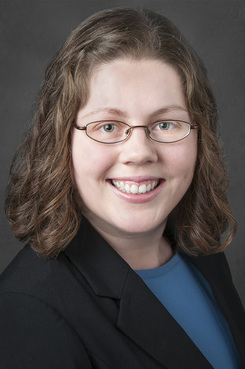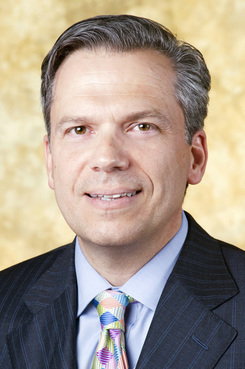For the Rookies, Three Lawyers Tackle 'What Do You Love About the Law?'
Three lawyers write to elaborate on a line from the movie "Philadelphia," where Tom Hanks' character is asked what he loves about the law.
October 26, 2018 at 05:00 PM
8 minute read
 (Photo: Bozena Fulawka/Shutterstock.com)
(Photo: Bozena Fulawka/Shutterstock.com)
After leading last year's essays for new lawyers with a piece titled “You're Going to Fail,” we had to take a more positive approach this year. So, this year I asked lawyers to consider a line from a movie, “Philadelphia,” where Tom Hanks' character is asked what he loves about the law.
His answer: “It's that every now and again—not often, but occasionally—you get to be a part of justice being done. That really is quite a thrill when that happens.”
Here are responses by three lawyers who explain their love for the law, keeping in mind the hundreds of recent law school graduates who just passed the bar exam.
Loving the Real Law
When speaking of “love for the law,” people often conjure up grandiose ideals of what they think love should be like. They love the law because they can fight for the little guy and justice will always prevail! (Cue the trial prep montage with upbeat music bringing us to the dramatic slam-dunk victory trial scene.)
 Max Ruthenberg-Marshall of Ruthenberg-Marshall-Law
Max Ruthenberg-Marshall of Ruthenberg-Marshall-LawSorry, but I do not believe in fairy tales. What I love about the law is not exactly what I envisioned while I was in law school, but that does not mean I love it any less.
I love my work. Litigation is fun. I enjoy going to trial and presenting the absolute best version of a client's case. Family law cases frequently settle, though, so it is also good that I like going to mediation, advising clients, as well as drafting pleadings and settlement letters. I work not only as a litigator, but also as a guardian ad litem and mediator. My work is engaging and offers me variety, so I do not get bored.
I love my clients. Helping clients through their divorce, custody case or adoption is deeply rewarding. I am working with people during one of the most vulnerable points in their lives, and I am able to provide them relief and guidance. While I do often have to tell them that their case will probably not work out exactly like they want it to, they are still so appreciative of my help.
I love my colleagues. I am not saying that I am BFFs with every opposing counsel, but, on the whole, I enjoy working with my peers. More importantly, through voluntary bar associations, I have formed meaningful and supportive professional relationships and have also met some of my closest friends. These are the people I turn to on the days when I do not love the law, so they can bring me back to loving it again.
I love my life. Being a lawyer allows me to be my own boss, and it really does not get any better than that. I have much more control over my work-life balance than I would in another setting. That does not necessarily mean I work less, but I get to choose the cases I work on. I also get to pour my heart and soul into building a business that is continually evolving to best serve clients' needs, which I am deeply passionate about. People often tell me they cannot believe I work in family law, because they assume it is depressing and that the clients are too needy. But I feel lucky to wake up each day and do what I do. I hope that the most recently admitted group of lawyers finds as much joy in their work as I do mine.
Max Ruthenberg-Marshall
The Ruthenberg-Marshall Law Firm, Decatur
'A Profession as Old as History'
I love being a member of a profession as old as history, a profession that can be traced to the dawn of writing in the Ancient Near East around 3,200 B.C.E. Young (and old) lawyers may take pride and inspiration from being part of a venerable heritage hearkening back to the scribes of ancient Mesopotamia, Canaan and Egypt, professionals who performed many roles, including that of lawyer. As lawyer-scribes, they wrote law codes, contracts, treaties and legal correspondence, as well as narratives and myths about the law and legal matters.
 Edward Snow of Burr & Forman
Edward Snow of Burr & FormanThey studied the law in scribal schools, including one student who noted, with perhaps more than adequate confidence, his ability to write “marriage contracts, company contracts … sales contracts for houses, fields … [and] securities in silver, lease contracts for fields, contracts for cultivating palm groves, and even adoption … [contracts on clay] tablets” (Dominique Charpin, “Reading and Writing in Babylon,” 37).
These lawyer-scribes of antiquity sometimes included women among their ranks, many of whom we know by name. Among these women who received an education in law and other scribal arts was Enheduanna, who lived around 2,300 B.C.E. She was, among other things, a poet, priestess and princess, the daughter of Sargon the Great and governor of some of his conquered territories. She is the first author in history known by name and some of her writings are still in print (Amanda H. Podany, “The Ancient Near East: A Very Short Introduction,” 43-46).
Also included in our heritage are the lawyer-scribes from ancient Nubia, south of Egypt, an area overlapping modern-day Sudan, whose leaders took control and ruled over a decaying Egypt during its 25th Dynasty from 744–656 B.C.E., all in an attempt to restore Egypt to its former glories. These Nubians later returned to the south after the founding of the 26th Dynasty in Egypt, and in the south they created new kingdoms, monumental architecture and their own written script known as Meroitic, a script that used Egyptian hieroglyphs to write the Nubian language (See Marjorie W. Fisher, et. al., eds., “Ancient Nubia: African Kingdoms on the Nile”).
The lawyer-scribes of antiquity also considered deeper topics in their writings, such as justice and mercy, setting the foundations of ethical thought that led to some of the noblest aspirations of our profession as summarized in part in the preamble to the Georgia Rules of Professional Conduct: “A lawyer is a representative of clients, an officer of the legal system and a citizen having special responsibility for the quality of justice.”
While many look to Roman and then medieval European law as the primary historical influences on our American legal concepts, it is clear that Roman, then European, then U.S. jurisprudence was heir to the legal thought and practice of the lawyer-scribes of the Ancient Near East, our professional ancestors. I welcome the challenge of improving upon such a venerable profession's goals and accomplishments.
Ed Snow
Burr & Forman, Atlanta
Helping Clients Do What They Want to Do
J.P. Morgan once said, “Well, I don't know as I want a lawyer to tell me what I cannot do. I hire [my lawyer] to tell me how to do what I want to do.”
This content has been archived. It is available through our partners, LexisNexis® and Bloomberg Law.
To view this content, please continue to their sites.
Not a Lexis Subscriber?
Subscribe Now
Not a Bloomberg Law Subscriber?
Subscribe Now
NOT FOR REPRINT
© 2025 ALM Global, LLC, All Rights Reserved. Request academic re-use from www.copyright.com. All other uses, submit a request to [email protected]. For more information visit Asset & Logo Licensing.
You Might Like
View All
CFPB Proposes Rule to Regulate Data Brokers Selling Sensitive Information
5 minute read

Trending Stories
Who Got The Work
J. Brugh Lower of Gibbons has entered an appearance for industrial equipment supplier Devco Corporation in a pending trademark infringement lawsuit. The suit, accusing the defendant of selling knock-off Graco products, was filed Dec. 18 in New Jersey District Court by Rivkin Radler on behalf of Graco Inc. and Graco Minnesota. The case, assigned to U.S. District Judge Zahid N. Quraishi, is 3:24-cv-11294, Graco Inc. et al v. Devco Corporation.
Who Got The Work
Rebecca Maller-Stein and Kent A. Yalowitz of Arnold & Porter Kaye Scholer have entered their appearances for Hanaco Venture Capital and its executives, Lior Prosor and David Frankel, in a pending securities lawsuit. The action, filed on Dec. 24 in New York Southern District Court by Zell, Aron & Co. on behalf of Goldeneye Advisors, accuses the defendants of negligently and fraudulently managing the plaintiff's $1 million investment. The case, assigned to U.S. District Judge Vernon S. Broderick, is 1:24-cv-09918, Goldeneye Advisors, LLC v. Hanaco Venture Capital, Ltd. et al.
Who Got The Work
Attorneys from A&O Shearman has stepped in as defense counsel for Toronto-Dominion Bank and other defendants in a pending securities class action. The suit, filed Dec. 11 in New York Southern District Court by Bleichmar Fonti & Auld, accuses the defendants of concealing the bank's 'pervasive' deficiencies in regards to its compliance with the Bank Secrecy Act and the quality of its anti-money laundering controls. The case, assigned to U.S. District Judge Arun Subramanian, is 1:24-cv-09445, Gonzalez v. The Toronto-Dominion Bank et al.
Who Got The Work
Crown Castle International, a Pennsylvania company providing shared communications infrastructure, has turned to Luke D. Wolf of Gordon Rees Scully Mansukhani to fend off a pending breach-of-contract lawsuit. The court action, filed Nov. 25 in Michigan Eastern District Court by Hooper Hathaway PC on behalf of The Town Residences LLC, accuses Crown Castle of failing to transfer approximately $30,000 in utility payments from T-Mobile in breach of a roof-top lease and assignment agreement. The case, assigned to U.S. District Judge Susan K. Declercq, is 2:24-cv-13131, The Town Residences LLC v. T-Mobile US, Inc. et al.
Who Got The Work
Wilfred P. Coronato and Daniel M. Schwartz of McCarter & English have stepped in as defense counsel to Electrolux Home Products Inc. in a pending product liability lawsuit. The court action, filed Nov. 26 in New York Eastern District Court by Poulos Lopiccolo PC and Nagel Rice LLP on behalf of David Stern, alleges that the defendant's refrigerators’ drawers and shelving repeatedly break and fall apart within months after purchase. The case, assigned to U.S. District Judge Joan M. Azrack, is 2:24-cv-08204, Stern v. Electrolux Home Products, Inc.
Featured Firms
Law Offices of Gary Martin Hays & Associates, P.C.
(470) 294-1674
Law Offices of Mark E. Salomone
(857) 444-6468
Smith & Hassler
(713) 739-1250







